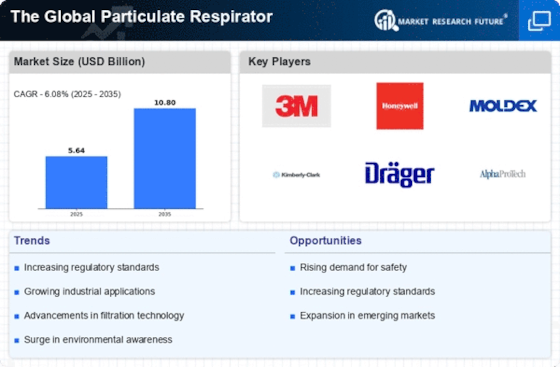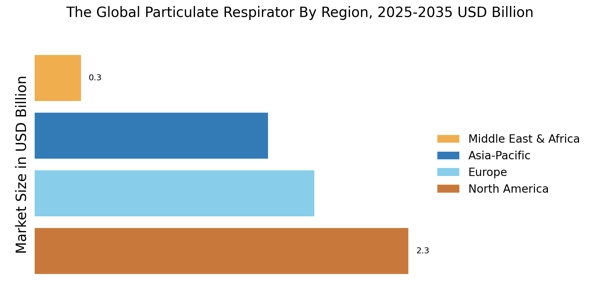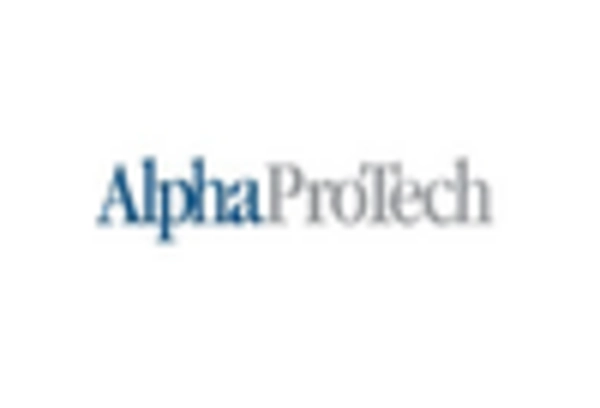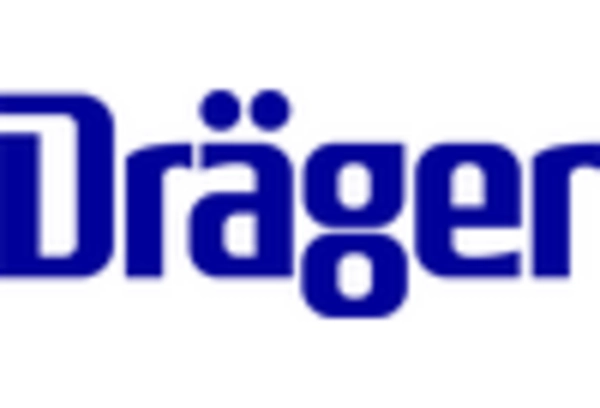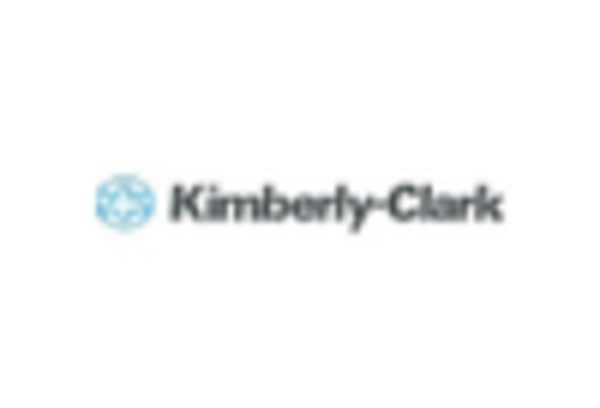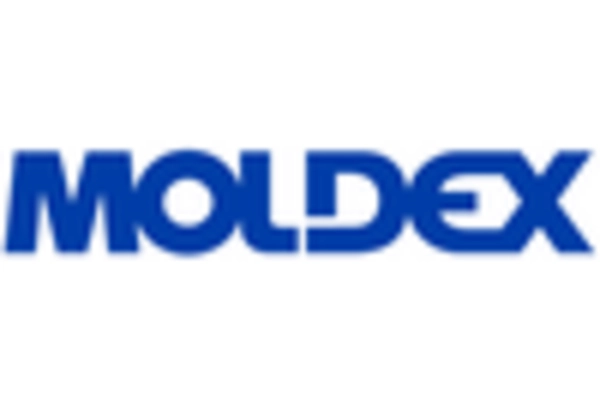Stringent Regulatory Frameworks
The implementation of stringent regulatory frameworks concerning air quality and occupational safety is likely to bolster the particulate respirator market. Governments and regulatory bodies are increasingly enforcing guidelines that mandate the use of personal protective equipment in various industries, particularly those exposed to hazardous airborne particles. This regulatory pressure compels organizations to invest in high-quality particulate respirators to comply with safety standards. Market data reveals that regions with rigorous enforcement of health and safety regulations experience a higher adoption rate of respiratory protection devices. Consequently, the particulate respirator market is expected to benefit from these evolving regulations, as companies strive to meet compliance requirements and protect their workforce.
Increased Demand from Healthcare Sector
The healthcare sector is witnessing an increased demand for particulate respirators, which is emerging as a crucial driver for the market. With the growing emphasis on infection control and patient safety, healthcare facilities are investing in high-quality respiratory protection for their staff. This trend is particularly pronounced in environments where exposure to airborne pathogens and particulate matter is a concern. Market data shows that the healthcare industry represents a significant portion of the overall demand in the particulate respirator market. As healthcare providers continue to prioritize safety and compliance with health regulations, the demand for effective particulate respirators is expected to rise, further propelling market growth.
Rising Industrialization and Urbanization
The ongoing trend of industrialization and urbanization appears to be a primary driver for the particulate respirator market. As industries expand and urban areas grow, the levels of air pollution tend to increase, leading to a heightened demand for effective respiratory protection. In various regions, particularly in developing economies, the rise in manufacturing activities correlates with a surge in particulate matter emissions. This scenario necessitates the use of particulate respirators to safeguard workers' health. The market data indicates that the industrial sector accounts for a substantial share of the overall demand in the particulate respirator market, suggesting that as urban centers continue to develop, the need for respiratory protection will likely escalate.
Growing Awareness of Occupational Health Risks
There is a noticeable increase in awareness regarding occupational health risks associated with airborne contaminants, which serves as a significant driver for the particulate respirator market. Workers and employers alike are becoming more cognizant of the potential health implications of prolonged exposure to particulate matter. This heightened awareness is prompting organizations to prioritize employee safety and invest in protective equipment. Market data suggests that sectors such as construction, manufacturing, and healthcare are particularly affected, as they face higher risks of exposure. As a result, the particulate respirator market is likely to see sustained growth, driven by the demand for effective respiratory protection solutions that address these health concerns.
Technological Advancements in Respiratory Protection
Technological advancements in respiratory protection are transforming the landscape of the particulate respirator market. Innovations in filtration technology, materials, and design are enhancing the effectiveness and comfort of respirators. For instance, the introduction of advanced filter media and ergonomic designs is making respirators more user-friendly and efficient. This trend is particularly relevant in industries where prolonged use of respiratory protection is necessary. Market data indicates that the adoption of technologically advanced respirators is on the rise, as users seek products that offer superior protection without compromising comfort. Thus, the particulate respirator market is likely to experience growth driven by these innovations, as they cater to the evolving needs of consumers.


